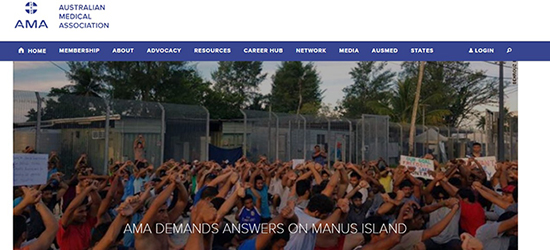CEH adds voice to Australian Medical Association’s call for action on Manus Island refugees.
The Centre for Culture, Ethnicity & Health (CEH) strongly supports the Australian Medical Association’s (AMA) call for the Federal Government to provide transparent and detailed reports on the wellbeing and health of the asylum seekers placed on Manus Island.
‘’We stand with the AMA in calling for the Federal Government to take immediate steps to ensure the men living on Manus Island have safe and hygienic living conditions, and that their health and well-being is being taken care of” Alison Coelho Co-manager of CEH said today.
The AMA has recently made many representations to the government, on this matter, but believes as time passes the urgency to take action has increased.
“The Federal Government is responsible for placing these refugees in this situation and needs to ensure these people come to no harm. We would like to see much more compassion towards these people, from Australia. We need to remember these 400 people have already suffered multiple hardships before and after they arrived at Manus Island,” Alison said. “This situation is already harming Australia’s international reputation and contributing to an appalling backwards step on human rights,”.
The offshore detention centre, located in Papua New Guinea, was closed at the end of October, with the men remaining at the centre, still facing an uncertain future.
“We agree with the AMA, that the government needs to act quickly and directly,” Alison said “As a first step, a group of medical experts, independent of the government, needs to be flown immediately to Manus Island to make an assessment of the health and well-being of the men, there,”
Here is the full text of the motion passed by the AMA Federal Council
Related Information
Connecting with communities using Health Literacy principles
Plain language is essential for effective communication. When health information is presented in plain language, it is easier for people to understand. This is particularly important when dealing with diverse communities where English may not be the first language for many residents.
Co-design: what, why and how?
We know that collaboration is an important step in engaging diverse communities in services, particularly those that face certain barriers such as linguistic and cultural differences, lack of awareness of services, and limited access to information. So, how can we collaborate with these communities? Read on for our thoughts.
The Arthur Kleinman Explanatory Model
This model was first proposed by Arthur Kleinman, who developed a set of eight questions to ask a client to learn more about their explanatory model to provide better patient-centered care.
Addressing challenges to work cross culturally; new cultural competence bundles
When there are gaps in cultural awareness and language, there are more misunderstandings, biases and sometimes compromised health outcomes. The good news is that there is so much we can do to be more prepared.

Let us inform you about our EVENTS & NEWS?

